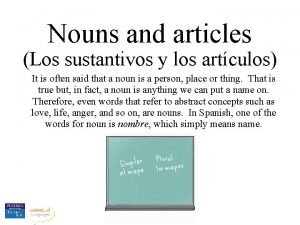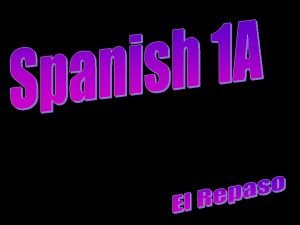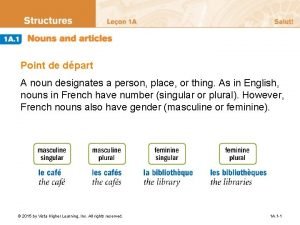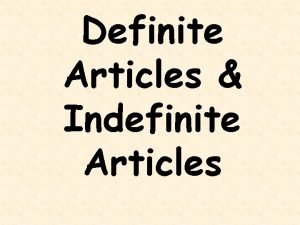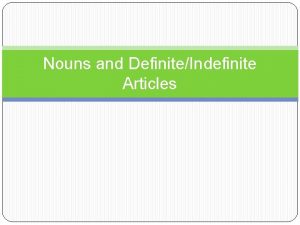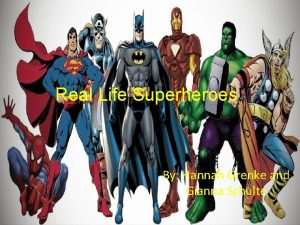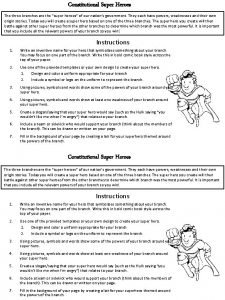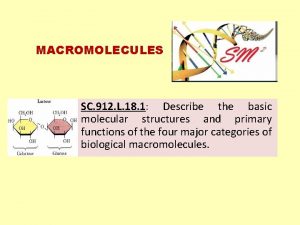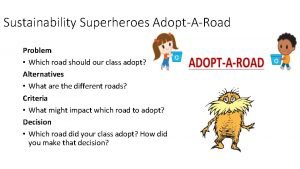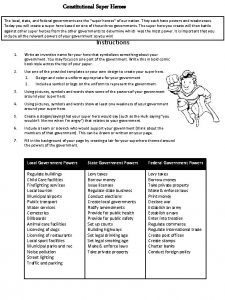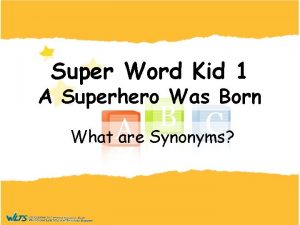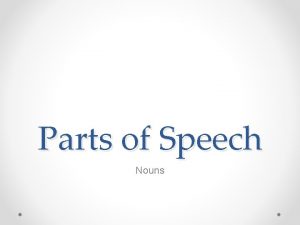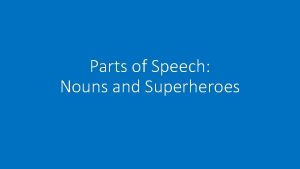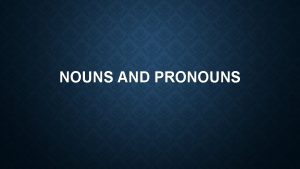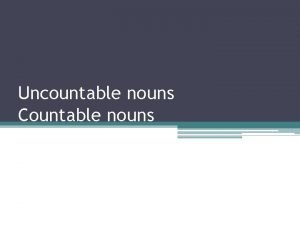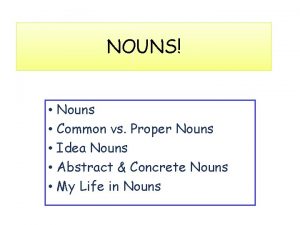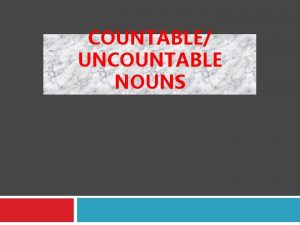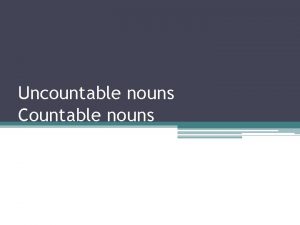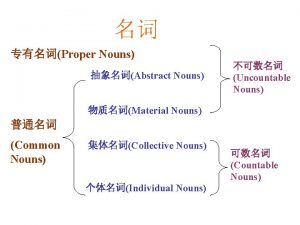Parts of Speech Nouns and Articles and Superheroes











- Slides: 11

Parts of Speech: Nouns and Articles and Superheroes

Time Warp Back to Elementary School: What is a noun? You may remember your third grade teacher telling you that a noun is a person, place, thing, or idea. She was right! Batman (person) Batmobile (thing) Gotham City (place) justice (idea)

Nouns can do different jobs within a sentence. Superman fights Lex Luthor. (subject) Lex Luthor fights Superman. (direct object) Lex Luthor tells Superman a secret. (indirect object) Clark Kent is Superman. (subject complement) Lex Luthor gives kryptonite to Superman. (object of preposition) If you don’t know what all of these parts of a sentence are, don’t worry! We will learn about them this year.

Nouns are often accompanied by another kind of word called an “article. ” Writers use articles to explain whether they are talking about one specific noun, or a nonspecific, general noun. Examples of Articles: “The” is called a definite article. It is used to talk about one particular person, place, or thing. The Avengers The Incredible Hulk “A” and “an” are called indefinite articles. They are used to talk about a general person, place, or thing. A robot An enemy “An” is used instead of “a” for words that start with a vowel or vowel sound (some words beginning with “h”).

Proper versus Common Nouns Proper nouns refer to a specific person, place, or thing. People believe Wolverine can save them. The students attend Xavier’s School for Gifted Youngsters. Common nouns refer to a general person, place, or thing. People believe heroes can save them. The students attend school. Proper nouns should be capitalized, while common nouns should be in lower-case (unless they are at the start of the sentence).

Count versus Non-count Nouns Count nouns refer to nouns that you can count. Non-count nouns refer to nouns that you cannot count. Spiderman climbs buildings. Spiderman fights evil. Spiderman has spidey senses. Spiderman kisses Mary Jane in the rain.

Count Nouns and Plurals Count nouns turn into plurals when there is more than one. To make a noun plural, you usually add “s” to the end of the word. For some nouns that end in “y, ” you change the “y” to “ies. ” For some irregular words, you add “es” (often words that already end in “s, ” “o, ” “x, ” “ch, ” or “sh”), and for others, you change the form of the word entirely. “y” to “ies” adding “es” singular plural villains enemy enemies hero monsters city cities goddess singular other plural singular plural heroes tooth teeth goddesses person people Other Exceptions… You won’t need to use these rules that often, but it’s good to know! singular -us fungus cactus plural -I fungi cacti singular -um phylum curriculum plural -a phyla curricula singular - f/fe wolf life plural singular plural -ves wolves lives -is analysis thesis -es analyses theses -ix appendix matrix -ices appendices matrices

Count and Non-count Nouns and Quantity Adjectives The word “fewer” is only used for count nouns; the word “less” is only used for noncount nouns. WRONG! You can count the number of items in your cart. The word “many” is only used for count nouns; the word “much” is only used for noncount nouns. Although Tony Stark has many friends, he doesn’t have much happiness in his life.

Collective Nouns Collective nouns are words that refer to a group of things (or people, or animals, or places, etc. ). Understanding collective nouns becomes important when deciding what form of a verb to use (we’ll talk about this later). the team the public the army the government

Concrete versus Abstract Nouns Concrete nouns are things that you can perceive with your senses (things that you can see, hear, smell, taste, or touch). Abstract nouns are things that you cannot perceive with your senses – often ideas or concepts. concrete abstract crime muscle justice Batman Arkham insanity criminal Asylum strength Concrete or abstract?

Gendered Nouns In English, almost all of our nouns are neutral (that is, they do not have a gender). Some other languages (Spanish, French, Latin, etc. ) assign gender to almost all of their nouns, even those that are not human. Here are some of the exceptions in English: masculine hero actor aviator waiter father feminine heroine actress aviatrix waitress mother Today, most writing guidelines advise that writers should try to use gender-neutral language whenever possible, so as to be fair. Examples of gender-neutral language include: • congressperson instead of congressman or congresswoman • flight attendant instead of steward or stewardess • he or she instead of he (and his or her instead of his, as well as him or her instead of him) • humanity or humankind instead of mankind
 Nouns and articles
Nouns and articles Articles singular and plural
Articles singular and plural Ir + a + infinitive (p. 206)
Ir + a + infinitive (p. 206) Select the correct article for each noun
Select the correct article for each noun You must use a plural article with plural nouns in spanish
You must use a plural article with plural nouns in spanish Definite articles in spanish
Definite articles in spanish The real gianna
The real gianna Judicial branch superhero
Judicial branch superhero Macromolecule superheroes
Macromolecule superheroes What is littering
What is littering Constitutional superheroes examples
Constitutional superheroes examples Superheroes synonyms
Superheroes synonyms
